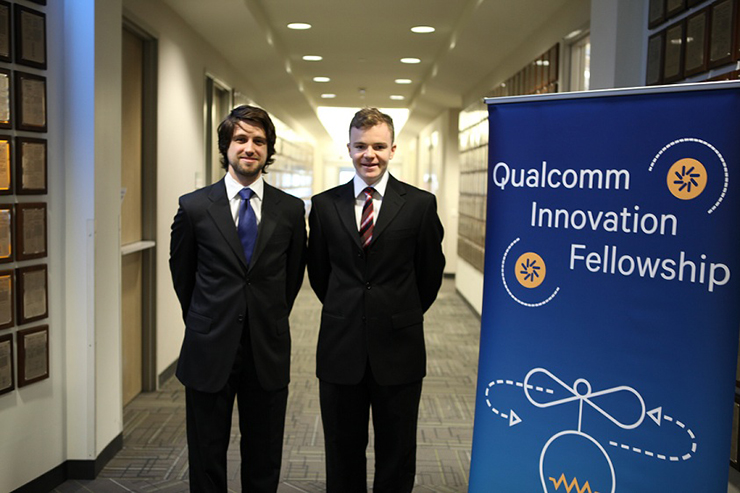Team at the intersection of microelectronics and synthetic biology receives $100K for bio-sensors project

Mark Mimee and Phillip Nadeau
An MIT team at the intersection of microelectronics and synthetic biology has won a $100K Qualcomm Innovation Fellowship for their proposal: "BacMOS: Electronic bio-sensors using synthetic biological transducers." The team consists of Ph.D. students Phillip Nadeau (EECS/MTL) and Mark Mimee (Microbiology), with their advisors, Professors Anantha Chandrakasan (EECS/MTL) and Timothy K Lu (EECS/BioE/RLE).
The idea arose from a cross-pollination of two disjoint research domains at MIT. Without augmentation, silicon electronics can perform only basic biological measurements that do not include biomarker detection. On the other hand, genetically engineered systems can detect biochemicals, but lack the sophistication of modern signal processing. The proposal centers on marrying these two technologies, and the team is now working on a device that could one day lead to new diagnostic tests for biomarkers in a small and low-power form-factor.
"It's a cross disciplinary proposal that doesn't fit well into any one traditional domain," says Nadeau. "That is what is so innovative about the Qualcomm fellowship. Its emphasis on teamwork allows us to explore these kinds of ideas."
In all, 137 proposals were submitted from 18 schools across the country for the U.S. edition of the fellowship competition. The MIT team was one of 34 semi-finalists invited to visit Qualcomm in San Diego to present to a panel of judges from across the Qualcomm's major divisions. From here, nine finalists teams, including the MIT team, were each selected to receive a $100k fellowship.
--Phillip Nadeau, Graduate Student, Department of Electrical Engineering & Computer Science